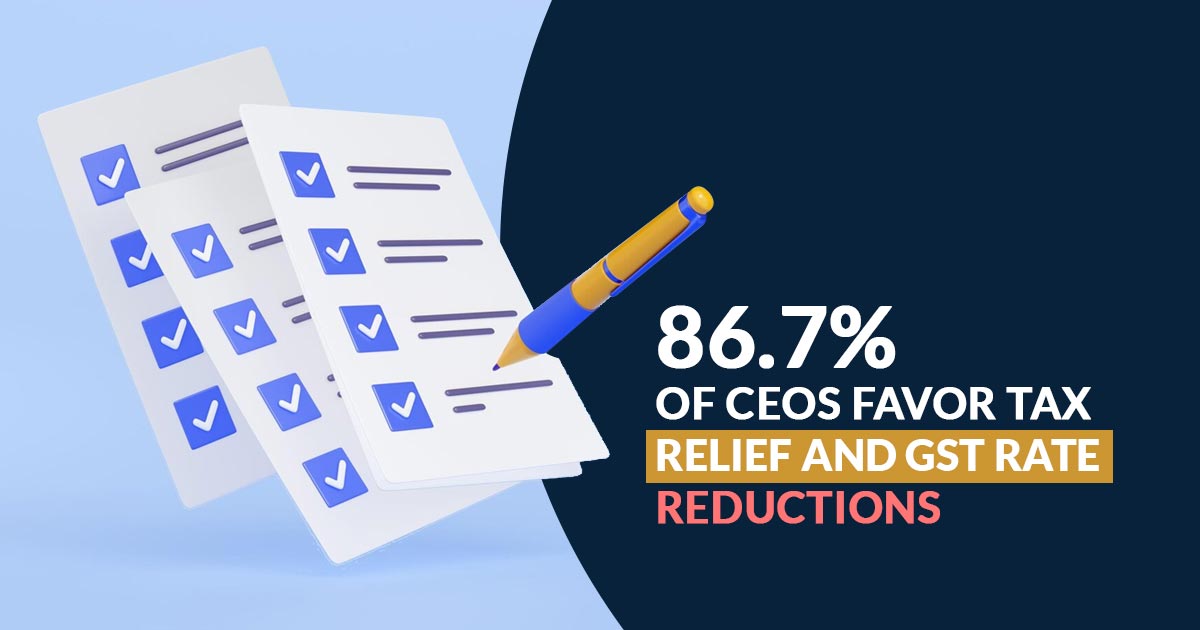
To increase consumption the majority of Indian industry believes in relief on income taxes and rationalization of goods and services tax (GST) directing to a rise in disposable income as the effective way.
MC-Deloitte CEO Survey was conducted between January 10 and January 22 across financial services, consumer goods, technology, and energy sectors survey was performed.
In a survey, 86.7 per cent of the CEOs have asked for an easier GST and a reduction in income taxes to stimulate consumption.
57.8% of the CEOs surveyed, the continued stress on the infrastructure spending to make a semi-skilled opportunity in tier-1 and tier-2 cities is the way to grow consumption, and 55.6 per cent stated measures sought at job creation would be effective.
Read Also: Know the Revised GST Slab Rates in India
40% of the respondents mentioned that having inflation via addressing the supply side challenges shall enhance consumption while a smaller 15.6% supposed the direct transfers and subsidies for the marginal sections of the society will be significant for the same.
Sought for a reduction in the taxes for the salaried class in India has become more apparent provided a reduction in the expenditure of the government on the infrastructure and revenue.
For the first eight months of FY25 Capital expenditure contracted over 12 per cent to Rs 5.1 lakh crore, making the concern more effective that the government may lose its record budgeted capex target of Rs 11.11 lakh crore.
The reduction in consumption particularly in the urban areas has been a case of concern owing to a rise in food inflation which stayed in the double digits for most of 2024.
To get an assurance, since 2024 was an election year spending by the government reduced, a trend has been witnessed particularly in the first half of FY25.
The reduction in the growth rate of the GDP of India to a seven-quarter low of 5.4 per cent in Q2 of FY25 further led to demands for measures to increase consumption.
Post accelerating to a seven-quarter high of 7.4 per cent in Q1 FY25, Private Final Consumption Expenditure or PFCE, reduced to 6 per cent between July-September. PFCE is an indicator to measure spending incurred by households.







